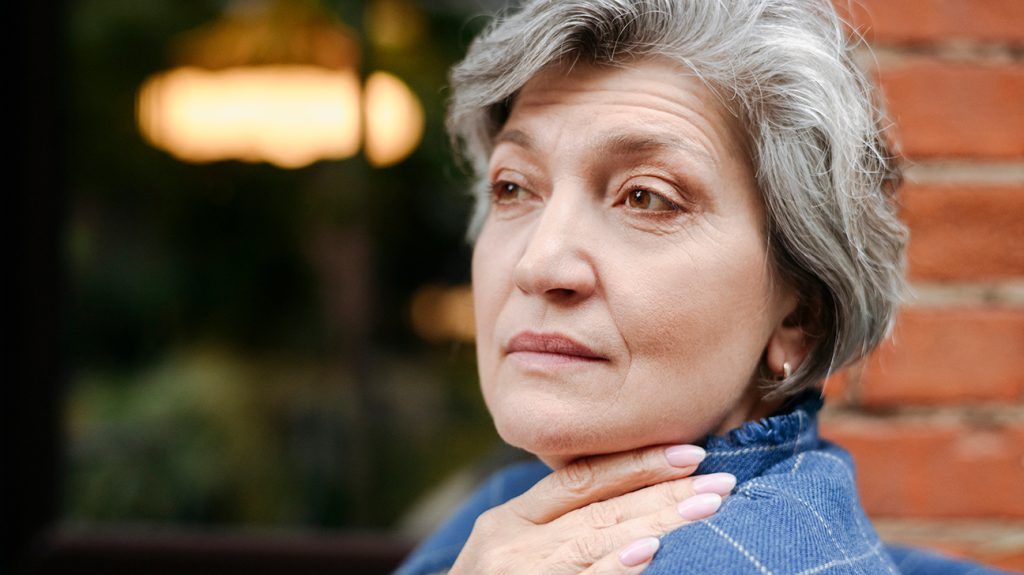Research shows there may be a link between COVID-19 and the symptoms of depression. Here’s why it happens.

Whether you’ve lost a loved one to COVID-19, experienced financial difficulties, or had a hard time adjusting to all the changes, the pandemic likely impacted you in some way. If you feel like you’re living with depression resulting from all of this, you’re not alone.
Between 2020 and 2021, diagnoses of anxiety and depressive disorders jumped from
But are these symptoms of depression a result of external factors only, or is depression a residual effect of the disease? So far, the research is pointing toward both.
Scientists are learning more about the new coronavirus every day. But, for now, there’s limited information about the long-term effects of COVID-19.
But there’s some indication that there may be a link between the disease and symptoms of depression.
One study suggested that the coronavirus indirectly creates blood clots, which can cause brain damage.
Another
The coronavirus’s effect on the brain increases the risk for mental health challenges. About
Mental health symptoms that developed as a result of COVID-19 also seem to persist
There also appears to be a link between COVID-19 symptoms and common symptoms of depression. For example, the
More recent research is starting to link depression with COVID-induced headaches. For example, a
Even if you never developed COVID-19, you’ve likely been affected by the pandemic. Last year, life as we know it ended, and it may have taken a toll on our mental health.
We’re designed to be social creatures. With physical and social distancing, you may have been grieving the loss of one of the best parts of being a human: connection.
Lockdowns and quarantines were associated with a
Like millions of Americans, you may have experienced financial insecurity. Research shows that people who lost their job because of the pandemic reported higher stress levels, more anxiety, and more depressive symptoms.
The pandemic has left other triggering factors for depression all around. These can include:
- fear of getting sick or dying from the virus
- reduced access to caregivers
- grief over the people who died from COVID-19
You don’t have to handle these feelings alone. Depression doesn’t define you. There are resources available to help you cope with what’s going on.
Depression may have a way of creeping up on you when you’re in crisis mode. It can feel like a struggle to do everyday tasks when the world seems to be on fire. But there’s a light at the end of the tunnel.
Vaccines are now available to physically protect your body. Prioritizing your mental health and practicing self-care can help protect your mental and emotional health. Some strategies include:
- meditating
- taking deep breaths to ground yourself when you’re feeling overwhelmed
- getting 8 hours of sleep every night with consistent bedtimes
- limiting or avoiding alcohol and substances
- staying connected with other people
- getting vaccinated for peace of mind
The most important thing to remember is that depression is manageable. If your symptoms were caused by physical illness, you might want to consider working with a medical professional. That way, they can give you a full work-up and give you the proper care you need.
You may feel overwhelmed by what’s going on in the world. If you’ve never had an issue with your mental health, it’s easy to get flustered over who to talk to and where to get help.
Sometimes taking a step back from your job, going for a walk outside, or speaking with a loved one refreshes the mind. But how do you know if your sadness is depression?
If you’re feeling any of the following symptoms for more than 2 weeks, you may be showing signs of depression:
- unexpected aches
- an inability to concentrate
- trouble sleeping
- changes in appetite
- irritability and agitation
Depression may increase your chance of self-harm or suicide. Help is always available when life feels overwhelming. Here are some signs you should look out for:
- increased substance use
- irregular sleeping patterns
- more aggression than usual
- constant tiredness
- loss of interest in friends, family, and activities
Suicide prevention
If you’re considering self-harm or suicide, you’re not alone. Help is available right now:
- Call a crisis hotline, such as the National Suicide Prevention Lifeline at 800-273-8255.
- Text “HOME” to the Crisis Text Line at 741741.
Looking after your mental health is just as important as protecting yourself from COVID-19.
If you’re living with depression from COVID-19, take our short 18-question survey to figure out where your mental health currently stands. You can also take our quiz to see whether you might want to consider therapy.
There are also several methods to find a therapist near you or via telehealth.
Here are some other mental health resources you may want to explore:
- American Psychiatric Association’s Find a Psychiatrist tool
- American Psychological Association’s Find a Psychologist tool
- Asian Mental Health Collective’s therapist directory
- Association of Black Psychologists’ Find a Psychologist tool
- National Alliance on Mental Illness Helplines and Support Tools
National Institute of Mental Health’s Helpline Directory - National Queer and Trans Therapists of Color Network
- Inclusive Therapists
